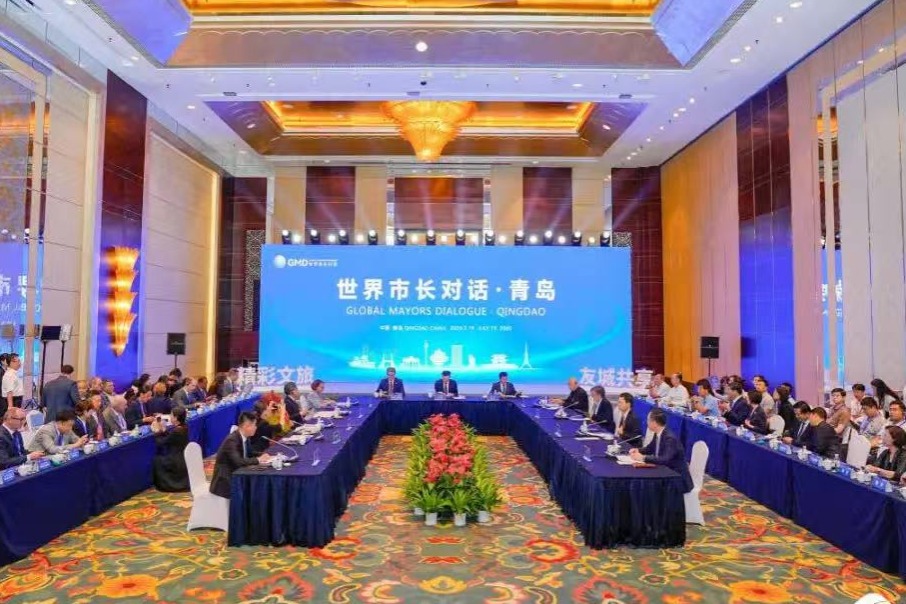Fair business environment serves both sides: China Daily editorial


It is only natural that multinational companies should wish to invest in India, given its large and steadily growing domestic market, ample supply of inexpensive labor and stable economic growth. But the restrictive policies the country has introduced have created a barrier for Chinese companies.
As a result, Chinese companies are having second thoughts about investing in the country. For instance, a 2023 plan by China's major electric vehicle maker BYD to invest $1 billion in a joint venture in India has been shelved.
It is because of the restrictive policies and practices, some of which are also applicable to foreign entities from other countries, that gross FDI in India, which includes reinvested earnings and equity inflows, fell to $71 billion in 2023-24, the lowest since 2018-19, according to data from the Reserve Bank of India. That prompted the Indian government to consider last year expanded measures to allow greater flexibility for strategic foreign investors to buy stakes in local companies.
But relevant moves seem to be slow forthcoming. For instance, India's foreign exchange laws do not recognize mezzanine instruments in corporate financing, which are common globally, particularly in large transactions involving mergers and acquisitions. Also, the Indian authorities have set strict ceiling shares for foreign investment in certain industries, and the process to apply for licenses to invest in India remains complicated.
As for the predictable, stable and transparent policy framework and judicial system it promised, the Indian government apparently still has a lot of work to do in order to effectively unleash the country's potential as a major FDI destination.
The net foreign direct investment in India tumbled to a record low of just $353 million in the past financial year, a fraction of the $43.9 billion logged in the year ended March 2021, according to a Reuters report. That might be a key factor prompting the policy circles in the country to double down on their efforts to urge the Indian government to accelerate its efforts to unlock its institutional restrictions on foreign investors, particularly those from China, which is India's largest trading partner and whose FDI in India has long been unreasonably restrained.
A major Indian government think tank, NITI Aayog, has proposed easing rules that de facto require extra scrutiny for investments by Chinese companies, suggesting that Chinese companies can take a stake of up to 24 percent in an Indian company without any approval being required. Currently approval is required from both the home and foreign ministries.
The think tank has urged New Delhi to be mindful of the fact that such restrictive rules customized for Chinese investors have delayed some sizeable deals, hurting India's interests. The proposal is part of a plan to boost foreign direct investment in India and is reportedly being studied by the trade ministry's industries department, the finance and foreign ministries, as well as Indian Prime Minister Narendra Modi's office.
Relations between China and India have maintained a positive trajectory since last year's agreement to properly handle their border disputes. Indian Foreign Minister Subrahmanyam Jaishankar wrapped up his first trip to China in five years last week, during which he clearly said the two nations should avoid imposing restrictive trade measures against each other.
The Indian government has no reason not to ease its restrictions on Chinese investment. Beijing hopes that New Delhi will fully recognize the mutually beneficial and win-win nature of China-India economic and trade cooperation and provide a fair, just, transparent and nondiscriminatory business environment for Chinese companies to invest and operate in India.
China has always believed that being mutually supportive partners is the only correct choice for both sides.
As the two largest developing countries, it is their shared responsibility to support each other rather than confront each other, and to cooperate closely rather than be wary of each other, as this is in the fundamental interests of both countries and their peoples.
This year marks the 75th anniversary of the establishment of diplomatic relations between China and India. China is willing to work with India to open up new possibilities for the future, and promote the healthy and stable development of China-India relations.


































